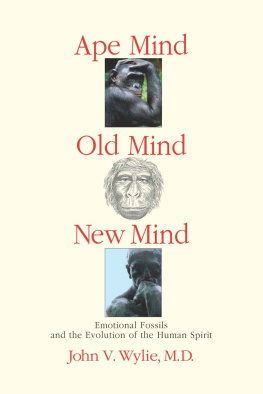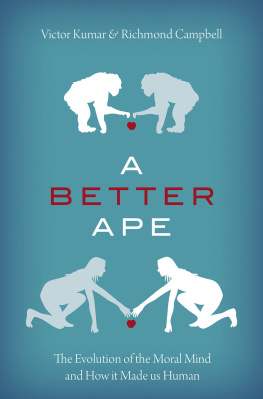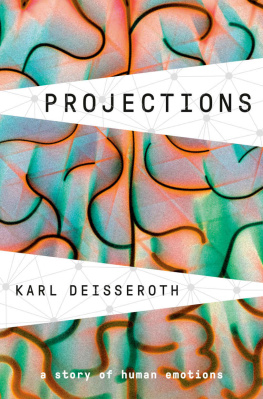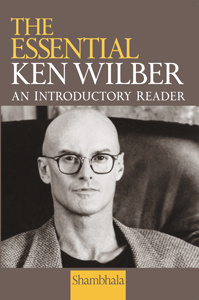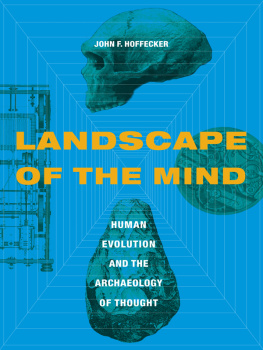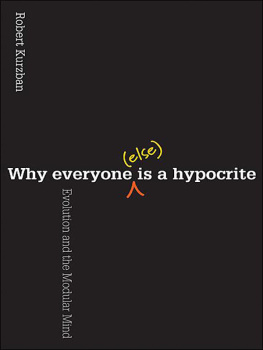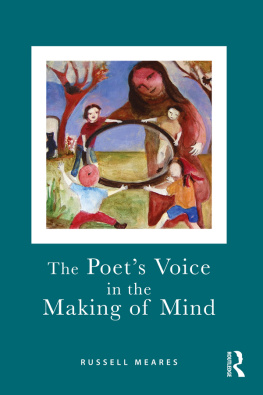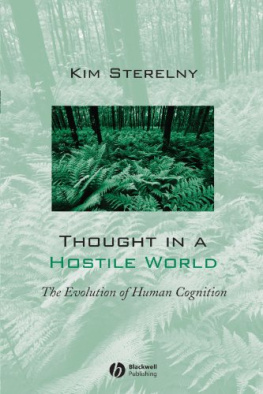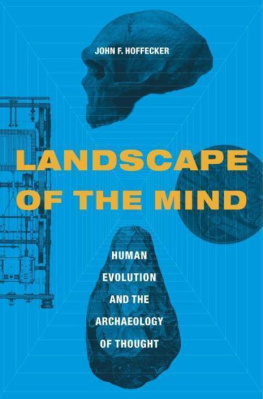"In this breathtakingly original book, John Wylie proposes a new theory of mind, one that reconciles evolutionary biology with psychodynamics. This is a great endeavor of the intellect and a deep review of consciousness itself."
Andrew Solomon: Noonday Demon (National Book Award) & Far from the Tree.

HUMAN NATURE DESCENDS FROM THE STRUGGLE FOR FITNESS
This view of man was born in October 1938, when Charles Darwin read Thomas Malthuss treatise on the perils of overpopulation upon which he framed his theory of natural selection as the survival of the fittest.
When Darwin turned his attention to the evolution of humans in The Descent of Man, and Selection in Relation to Sex, he introduced the crucial role of sexual selection. This book reinterprets the known facts about human evolution in light of Darwins other evolutionary mechanism.
EMOTIONS AND MOTIVATIONS: A NEW NARRATIVE OF HUMAN EVOLUTION
Major psychiatric illnesses can be understood as the breakdown of key emotional functions that have remained stable since they arose to play decisive roles in human evolution. Through an understanding of the motivational component of ancient social behaviors, a new inner evolutionary narrative emerges that is consistent with scientific know-ledge in paleoanthropology and related fieldsand as a bonus, a humanistic understanding of the mentally ill is enlightened.
By means of a process akin to Darwins conception of sexual selection, the dominancesubmission interaction between ape individuals was rendered into the singular group function of obedience to authority. Under threat of extinction, the defining phenomenon of authority arose in our earliest human ancestors as the nascent capacity to share their pooled motivations to survive as a single creature.
Human authority was then submitted to classical natural selection, not for the fitness of individuals or groups, but for the most just relationships, because, whether it be a pair-bond or a nation, justice is the most productive social system imaginable. Over millions of years, the struggle for justice proceeded to sanction the evolution of the most fundamental human adaptation: the coordination of divided labor.
HUMAN NATURE DESCENDS FROM THE STRUGGLE FOR JUSTICE
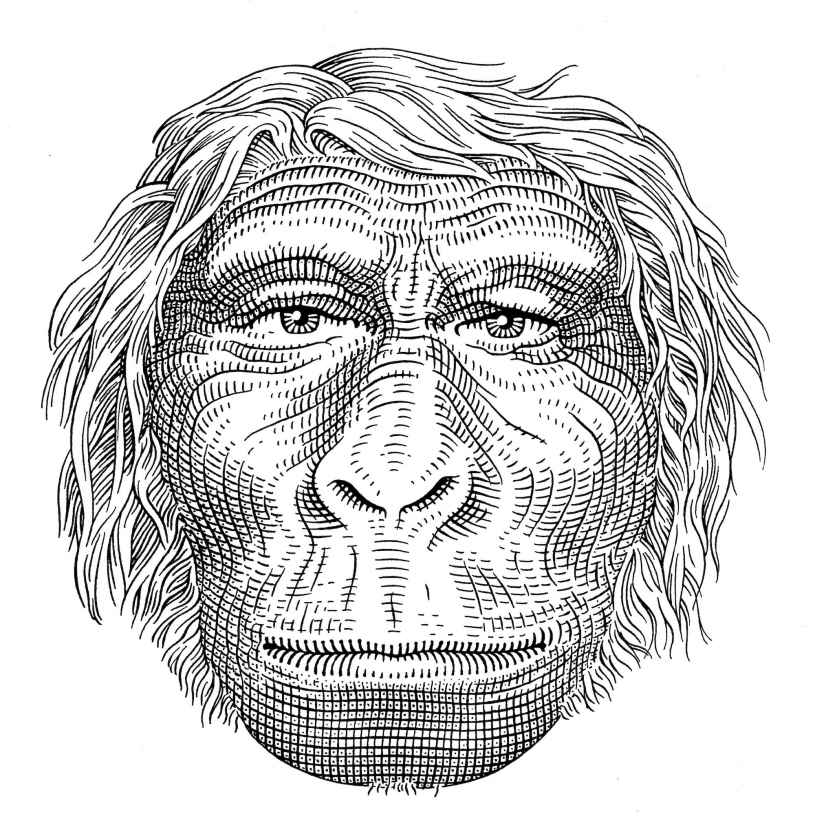
URMENSCH
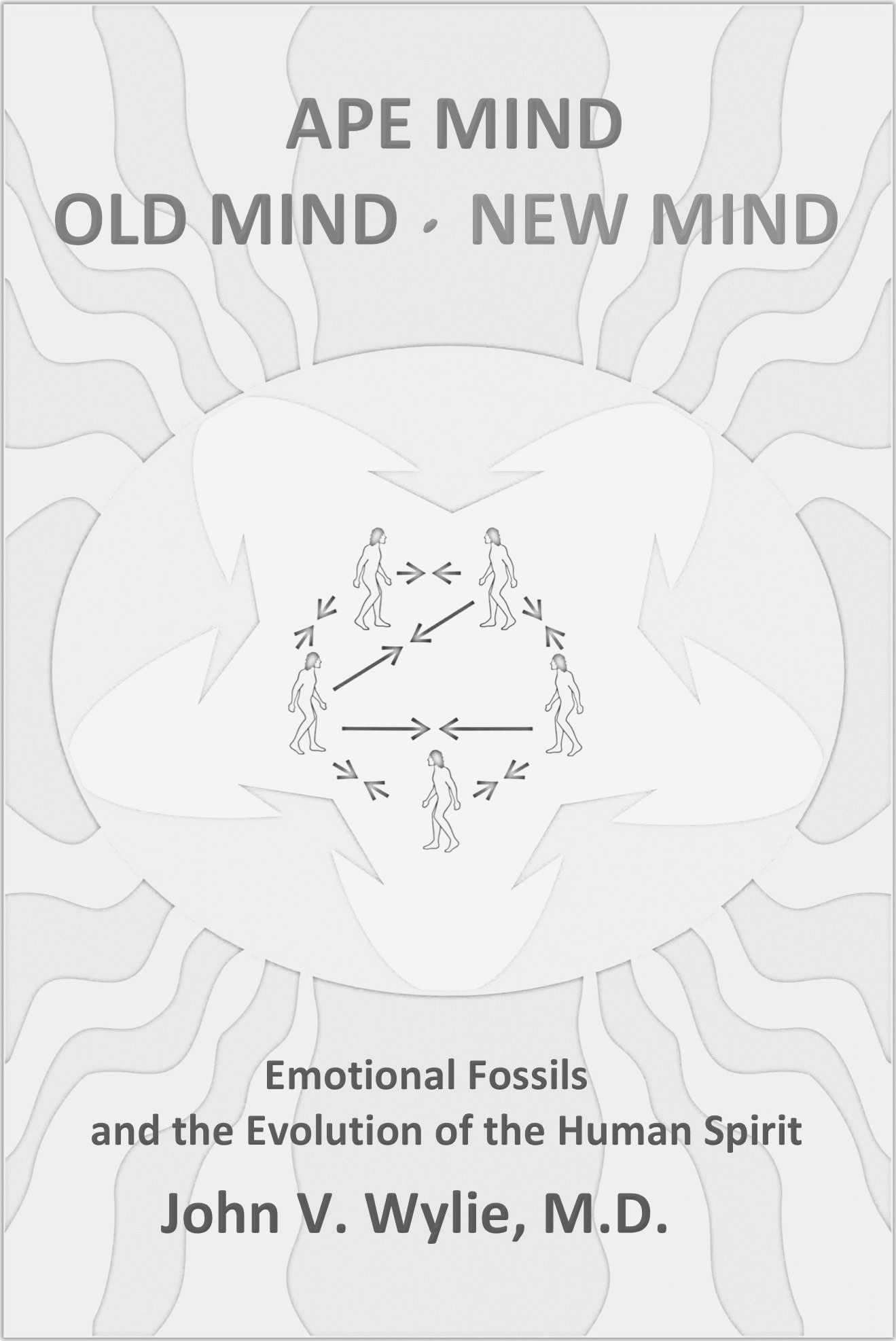
Ape Mind, Old Mind, New Mind
Emotional Fossils
and the Evolution of the Human Spirit
Copyright 2018 John Wylie
All rights reserved.
Printed in the United States of America
Previously published in 2017 as:
Ape Mind, Old Mind, New Mind: The Evolution of the Human Spirit
Cover design by Martin A. Padley
ape by minden pictures/master file
drawing by Jgen Willbarth
thinker by innoxius
Illustrations by
www.whywebecamehuman.com
HOMININ PRESS
Olney, Maryland
For Ann
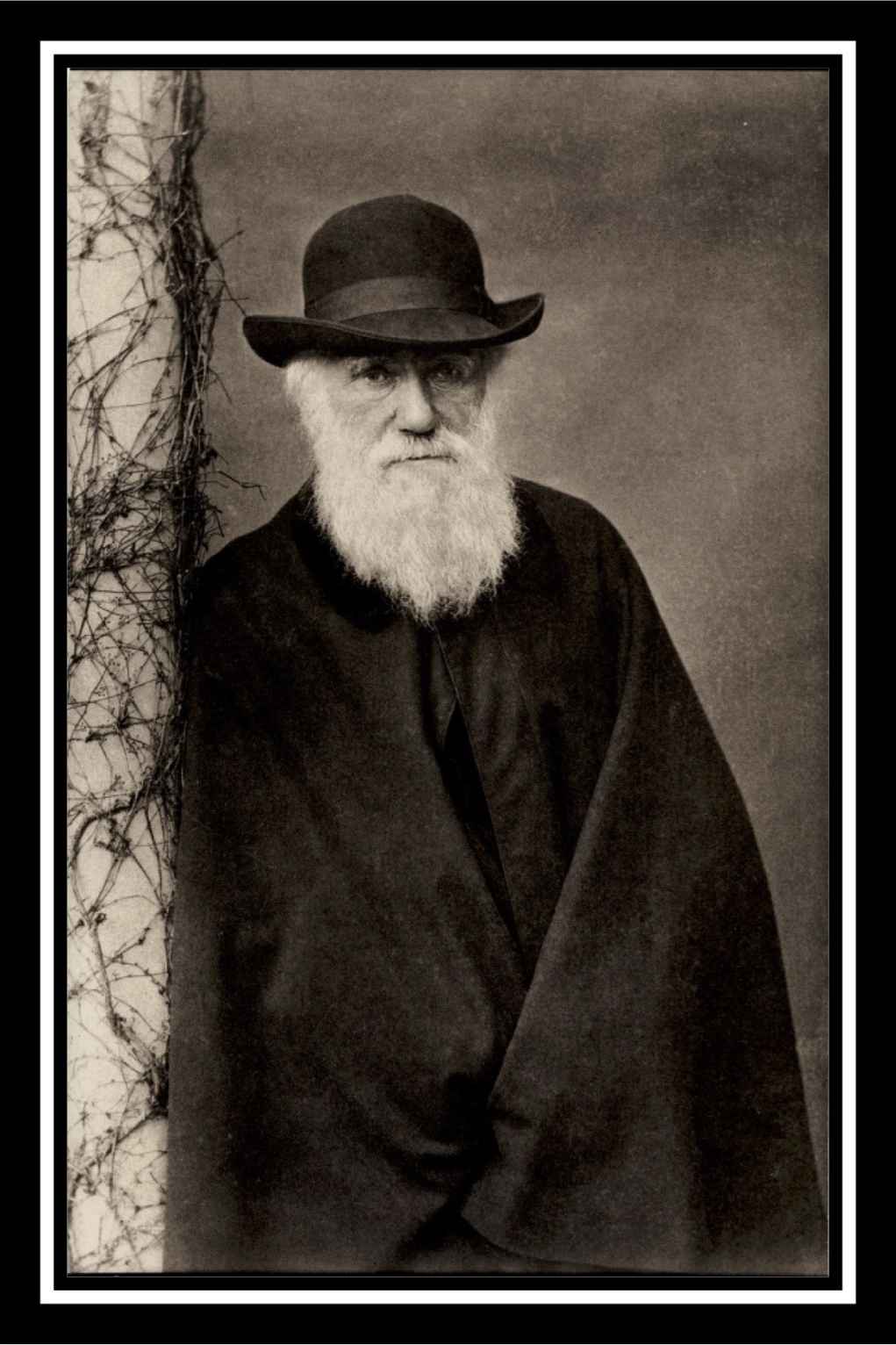
We have also seen that expression in itself, or the language of the emotions, as it has sometimes been called, is certainly of importance for the welfare of mankind. To understand, as far as possible, the source or origin of the various expressions which may be hourly seen on the faces of the men around us, not to mention the domesticated animals, ought to possess much interest for us.
Charles Darwin,
The Expression of the Emotions in Man and Animals (1872)
ALSO BY THE AUTHOR
Diagnosing and Treating Mental Illness:
A Guide for Physicians, Nurses, Patients, and Their Families
Table of Contents
For centuries the writ of empiricism [science] has been spreading into the ancient domain of transcendentalist belief, slowly at the start but quickening in the scientific age. The spirits our ancestors knew intimately fled first the rocks and trees and then the distant mountains. Now they are in the stars, where their final extinction is possible. But we cannot live without them. People need a sacred narrative. They must have a sense of larger purpose, in one form or another, however intellectualized. They will refuse to yield to the despair of animal mortality. They will continue to plead, in company with the psalmist, Now Lord, what is my comfort? They will find a way to keep the ancestral spirits alive.
... We are a single gene pool from which individuals are drawn in each generation and into which they are dissolved the next generation, forever united as a species by heritage and a common future. Such are the conceptions, based on fact, from which new intimations of immortality can be drawn and a new mythos evolved.
Edward O. Wilson, Consiliance (1999)
For electronic version: Readers are encouraged to click through to the footnotes and then click the number back to the text as they add important information.
Introduction
I READ CHARLES DARWINS Voyage of the Beagle during a dark night of the soul. I had just come close to being killed in a maximum-security prison where, as a young psychiatrist, I had embarked on a secret mission to examine the nature of evil. I remember one night in particular floundering in a sea of doubts about the direction my life had taken; I started reading the Beagle and dissolved into a tropical cove anchored off the coast of South America discussing the days findings with Captain Fitzroy over a glass of brandy. As I began to work my way through Darwins great treatises, I passed a point of no return. Without my being aware of it, Darwins voyage became my voyage.
Nearly three decades later, late at night I sat transfixed as I read the preceding passage by my then hero, E. O. Wilson. I exclaimed to myself, You can do this! I felt that all the eccentric twists in my life had prepared me for meeting Wilsons challenge to keep the ancestral spirits alive... with new conceptions, based on fact, from which new intimations of immortality can be drawn and a new mythos evolved.
We belong to the primate order of the mammalian class of the animal kingdom. A distinguishing characteristic of primate evolution is the manner in which their large brains were acquired. There is wide agreement that these outsized brains were evolved not in response to the outer physical environment but to the inner environment of an intense hierarchical social structure. I propose that the changes that rendered apes into humans also took place in the brain as humans adapted to a momentous change in the social structure of ape societies. Our distinguishing characteristic of upright posture and the development of a widespread stone tool industry were both a response to the distinctively human social environment which is a central topic the book.
Primates began forming groups some fifty million years ago. The hierarchical social structures that make up their meta-environment are actually comprised of so-called social emotions. Internally experienced emotions generated by the brain comprise the core of what is known as the mind. Like other primates, our mind is a social mind because our social behaviors and cognitions (ways of knowing and communicating) have evolved upon a scaffolding consisting of an invisible shared environment of social emotions.
Emotions are generally viewed in evolution as mere secondary, proximate vehicles with which to achieve ultimate behavioral adaptations to physical environments. For example, while the ultimate behavioral adaptation to the danger of falling off a cliff is to avoid cliffs, the proximate mechanism is the fear of heights. Similarly, most social emotions are fear-based and function to motivate individuals to avoid falling out of their groups.
Next page
